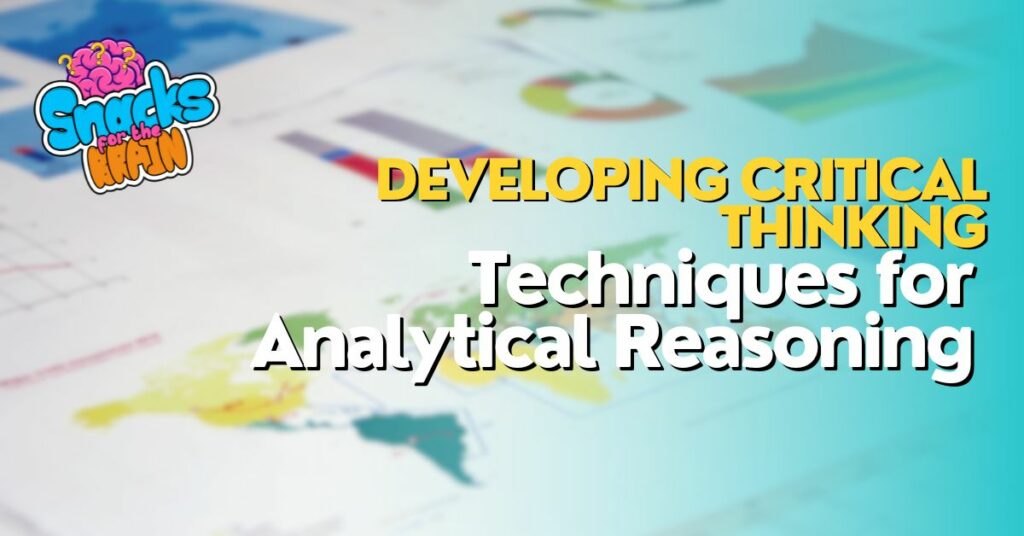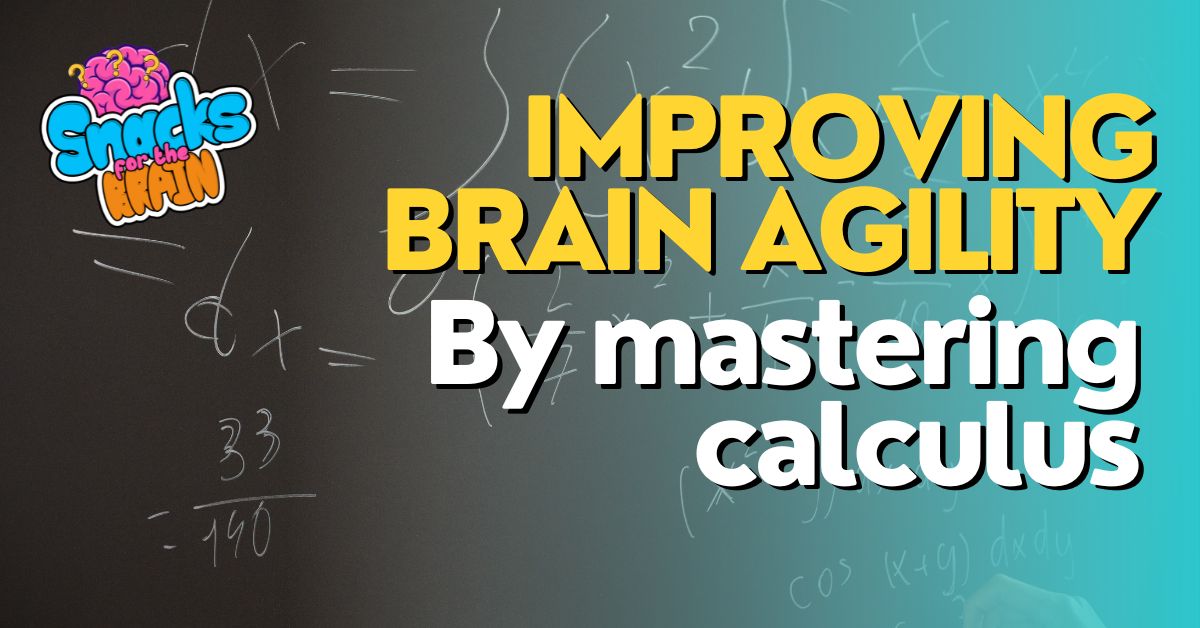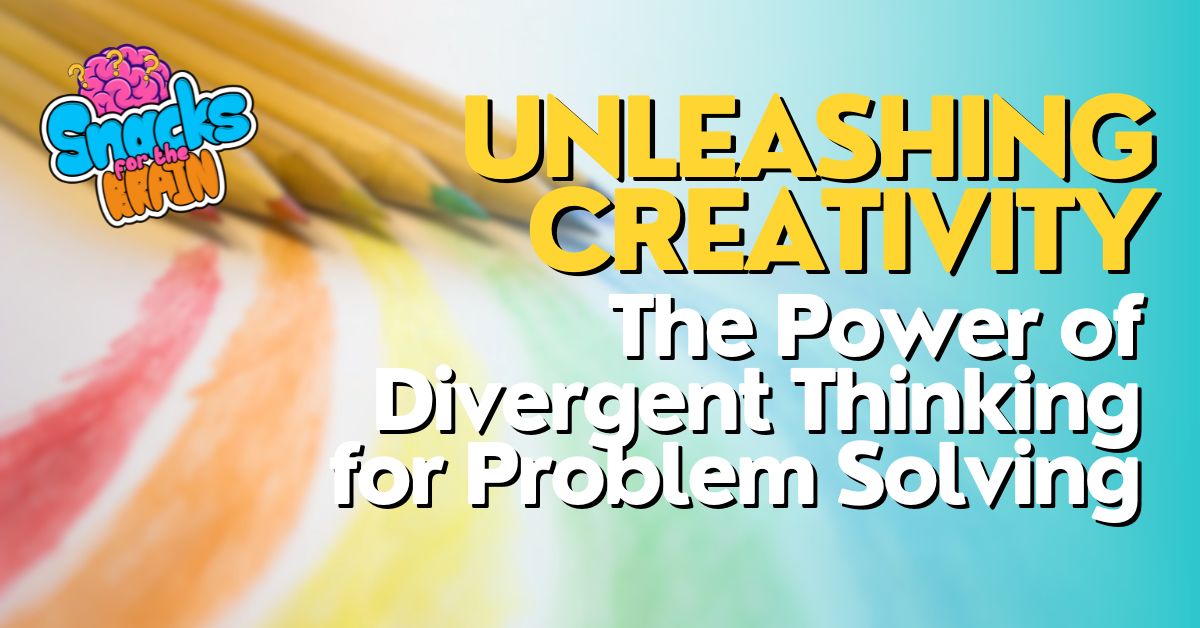Introduction to Techniques for Analytical Reasoning
Analytical thinking is an essential skill that enables individuals to dissect complex information, identify underlying patterns, and make decisions based on logical conclusions. It transcends various aspects of life, from professional challenges to personal endeavors. This article delves into the nuances of analytical reasoning, presenting techniques to enhance your analytical capabilities, and exploring the profound impact it has on decision-making and problem-solving. Embark on this journey to sharpen your analytical acumen and unlock a world of possibilities.
Key Takeaways
- Analytical thinking is a multifaceted skill that involves critical evaluation, data analysis, and creativity to solve problems and make informed decisions.
- Developing analytical thinking skills requires practice in research proficiency, advanced data analysis, and fostering problem-solving creativity.
- Analytical reasoning plays a pivotal role in informed decision-making, effective problem-solving, and driving innovation.
- Real-world applications of analytical thinking span workplace challenges, personal finance management, and understanding global issues.
- Cultivating an analytical mindset is a continuous process that involves lifelong learning, critical evaluation of arguments, and developing logical judgment.
Understanding Analytical Thinking

Defining Analytical Thinking
At its core, analytical thinking is the ability to dissect complex issues into manageable parts, understand their interconnections, and make reasoned judgments based on evidence. It is a multifaceted skill that encompasses logical reasoning, critical thinking, and the capacity to evaluate information critically.
Analytical thinking is not an innate talent but rather a skill that can be honed with practice. To develop this skill, one must engage in activities that challenge the mind and require the application of various analytical methods. Below are some key components to consider:
- Effective Problem Solving: Involves breaking down a problem to its root cause and devising innovative solutions.
- Decision Making: Relies on analyzing data and information to make evidence-based choices.
- Critical Thinking: A crucial aspect of analytical thinking, it allows for the assessment of arguments and the formation of sound judgments.
By nurturing these components, individuals can enhance their analytical capabilities and become adept at navigating complex scenarios.
To further cultivate analytical thinking, it is essential to practice critical thinking, develop research skills, and identify patterns and trends in data. These practices lay the groundwork for a robust analytical approach to challenges.
The Role of Critical Thinking in Analysis
Critical thinking is the backbone of analytical reasoning, providing the framework for dissecting and understanding complex issues. It empowers individuals to question assumptions and explore alternative viewpoints, leading to more comprehensive analysis. Critical thinking involves a rigorous process of evaluation, where information is not just taken at face value but is scrutinized for validity and relevance.
- Identify the problem or question
- Gather relevant information
- Analyze the information from multiple perspectives
- Synthesize the findings into a coherent understanding
- Evaluate the conclusions and consider their implications
By integrating critical thinking into analysis, one can navigate through the noise of superficial data to reach the core of an issue. This approach not only enhances the quality of the analysis but also fosters a deeper level of insight and understanding.
Breaking Down Complex Information
To effectively dissect complex information, one must approach the task methodically. Identifying the underlying structure of the information is the first critical step. This involves recognizing patterns, relationships, and inconsistencies that may not be immediately apparent. By doing so, we can transform a daunting mass of data into a clear, organized framework.
Analysis is not just about the data itself, but also about understanding the context and the implications of the information. To aid in this process, consider the following steps:
- Define the problem or question at hand.
- Gather relevant data and information.
- Identify key components and variables.
- Organize information hierarchically or sequentially.
- Evaluate the information to draw conclusions.
The ability to break down complex information is not an innate talent but a skill that can be developed with practice and patience. It is a cornerstone of analytical thinking, enabling us to navigate through the noise and focus on what truly matters.
Techniques for Enhancing Analytical Skills

Developing Research Proficiency
To excel in analytical reasoning, one must become adept at gathering and analyzing information from diverse sources. This proficiency is not innate; it is cultivated through deliberate practice and the application of specific strategies.
Research skills are fundamental to analytical thinking, as they enable individuals to sift through data, recognize patterns, and approach problems logically. Enhancing these skills involves a focused approach that includes several key strategies:
- Practice critical thinking to evaluate information objectively.
- Develop problem-solving skills to deconstruct complex issues.
- Advance data analysis capabilities for insightful interpretations.
By consistently applying these strategies, one can sharpen their analytical toolkit, leading to more informed and effective decision-making.
Identifying personal strengths and areas for improvement is also crucial. This self-awareness allows for targeted development in areas such as solving novel problems and adapting to unfamiliar situations.
Advancing Data Analysis Techniques
In the realm of analytical reasoning, the ability to advance one’s data analysis techniques is paramount. Developing data analysis skills is not just about understanding numbers; it’s about uncovering the stories they tell. By identifying patterns and trends, analytical thinkers can transform raw data into actionable insights.
To enhance these skills, consider the following steps:
- Familiarize yourself with advanced analytics tools and software.
- Engage in continuous practice by analyzing datasets from various industries.
- Stay updated with the latest data analysis methodologies and best practices.
Mastery of data analysis techniques empowers individuals to improve decision-making processes and devise innovative solutions to complex problems.
As highlighted by a Coursera title, advanced analytics employs complex data analytics techniques to help improve decision making. This underscores the importance of not only learning but also applying sophisticated analytical methods to real-world scenarios.
Fostering Creativity in Problem-Solving
In the realm of analytical reasoning, fostering creativity is not just about generating new ideas; it’s about synthesizing information in novel ways to develop innovative solutions. Creativity in problem-solving is essential for breaking free from conventional patterns and approaching challenges with a fresh perspective.
To cultivate this skill, consider the following techniques:
- Drawing inspiration from diverse fields, including literary works, to spark imagination.
- Encouraging the exploration of unconventional solutions.
- Seeking outside help to gain different viewpoints and expand the problem-solving toolkit.
By integrating creativity into analytical processes, individuals can enhance their ability to dissect and understand complex problems, leading to more effective and efficient resolutions. This approach not only improves problem-solving skills but also empowers individuals to adapt to new information and situations with greater agility.
Analytical thinking, when paired with creativity, challenges assumptions and opens the door to exploring new possibilities. It is a powerful combination that leads to the discovery of novel approaches and the development of creative judgments that can transform the way we tackle problems in various domains.
The Significance of Analytical Reasoning

Informed Decision-Making
In the realm of analytical reasoning, informed decision-making stands as a cornerstone. It is the process of making choices that are substantiated by data and logical analysis rather than being guided by mere intuition or incomplete information. This approach to decision-making is particularly crucial in environments where the stakes are high and the consequences of choices can be significant.
Analytical thinking is instrumental in dissecting complex problems to identify their root causes. By doing so, it enables individuals to develop creative solutions and make decisions that are both effective and efficient. The following list outlines the key components that contribute to informed decision-making:
- Effective Problem Solving: Utilizing analytical skills to break down a problem and find its core issues.
- Critical Thinking: Evaluating arguments and evidence to make sound judgments.
- Logic: Applying reason and evidence-based reasoning to draw conclusions.
- Openness: Being receptive to new information and willing to adapt one’s thinking accordingly.
By focusing on these components, individuals can enhance their decision-making process, paving the way for significant improvements in problem-solving and the ability to learn and adapt to new information.
Effective Problem-Solving Strategies
Analytical reasoning is the backbone of effective problem-solving strategies. It equips individuals with the ability to dissect complex issues, identify underlying causes, and devise innovative solutions. By leveraging analytical skills, one can transform challenges into opportunities for growth and learning.
Effective problem-solving is not just about finding any solution, but about finding the best one. It involves a deep understanding of the problem at hand and the creative application of knowledge to navigate through obstacles.
The process of analytical reasoning in problem-solving can be broken down into several key steps:
- Identify the problem and understand its context.
- Analyze the data and information related to the problem.
- Generate a range of potential solutions.
- Evaluate the solutions based on evidence and feasibility.
- Implement the chosen solution and monitor its effectiveness.
These steps are not linear but rather part of an iterative cycle that refines understanding and solutions over time. The ability to engage in this cycle is what sets apart proficient problem-solvers from the rest.
Innovation through Analysis
Analytical thinking is a catalyst for innovation, as it empowers individuals to challenge existing paradigms and envision novel solutions. Innovative thinking is not a spontaneous occurrence but a systematic process that can be cultivated through rigorous analysis. By dissecting complex problems into their fundamental components, analytical thinkers can identify patterns and opportunities that others might overlook.
Innovation is often born out of the ability to see connections between seemingly unrelated concepts. This skill enables the creation of unique approaches and solutions that can revolutionize industries and improve lives. For instance, consider the following table illustrating the impact of analytical thinking on innovation:
| Analytical Skill | Impact on Innovation |
|---|---|
| Pattern Recognition | Leads to new product ideas |
| Logical Reasoning | Improves process efficiency |
| Critical Evaluation | Enhances service delivery |
The essence of analytical reasoning lies in its potential to transform the ordinary into the extraordinary. It is the meticulous examination and recombination of ideas that paves the way for breakthroughs and advancements.
Cultivating a mindset that embraces analytical reasoning is essential for those who aspire to be at the forefront of innovation. It requires a commitment to continuous learning and a willingness to question the status quo. By fostering this mindset, individuals and organizations can unlock a wealth of creative potential and drive progress.
Practical Applications of Analytical Thinking
Workplace Challenges and Analytical Approaches
In the modern workplace, challenges are as diverse as they are inevitable. Analytical thinking is the cornerstone that allows professionals to tackle these issues effectively. It involves a systematic examination of the problem, identifying patterns, and formulating solutions based on data-driven insights.
Analytical skills are crucial in dissecting complex situations and devising strategic approaches. For instance, consider the task of optimizing a team’s workflow. This may involve several steps:
- Evaluating current processes
- Identifying bottlenecks and inefficiencies
- Gathering and analyzing relevant data
- Proposing and implementing improvements
- Monitoring changes and measuring outcomes
By consistently applying analytical reasoning, employees can transform obstacles into opportunities for growth and innovation.
The ability to gather, interpret, and assess information is not just a skill but a professional asset. It enables informed decision-making and problem-solving, which are vital in navigating the intricacies of today’s business environment.
Personal Finance Management
In the realm of personal finance, analytical thinking plays a pivotal role in ensuring financial stability and growth. By applying analytical skills, individuals can dissect their financial situations, understand the implications of their spending habits, and make informed decisions about savings and investments.
- Evaluate current financial status
- Set realistic financial goals
- Create a budget plan
- Monitor and adjust the plan as necessary
Analytical thinking in personal finance involves a continuous process of assessment, adjustment, and improvement.
For example, when considering a major purchase, it’s essential to analyze not only the immediate cost but also the long-term financial impact. This might include comparing financing options, considering the depreciation of the item, and determining how it fits within one’s overall financial plan.
Understanding Global Issues
In the realm of global issues, analytical thinking is not just beneficial; it is essential. The ability to dissect complex international challenges into more comprehensible parts allows for a deeper understanding and more effective solutions. For instance, when considering climate change, one must analyze scientific data, economic impacts, and political will to grasp the full picture.
Curiosity and observation are key traits that drive the analysis of global issues. By asking probing questions and observing the interplay between different factors, individuals can uncover underlying causes and potential remedies. Consider the following points to enhance your understanding:
- Ask questions to uncover the hidden assumptions behind policies.
- Collect and analyze both quantitative and qualitative data.
- Identify patterns and relationships that may not be immediately obvious.
By breaking down complex issues into smaller, manageable components, we can begin to address the root causes and not just the symptoms.
Engaging in regular problem-solving exercises, such as puzzles or real-world scenarios, can sharpen one’s ability to think analytically about global issues. This practice not only improves critical thinking skills but also prepares individuals to tackle the multifaceted problems our world faces.
Cultivating a Mindset for Analytical Reasoning

Continuous Learning and Curiosity
The pursuit of continuous learning is a cornerstone of analytical reasoning. Engaging in new experiences, such as reading, enrolling in courses, or exploring hobbies, not only broadens our horizons but also fortifies our cognitive resilience. Embracing challenges like learning new languages or mastering a musical instrument can significantly boost cognitive flexibility.
To enhance both fluid intelligence and crystallized intelligence, targeted activities and ongoing education are key. These efforts improve our inductive reasoning, expand our knowledge base, and elevate our problem-solving capabilities. Understanding the dynamic nature of cognitive abilities allows us to craft effective strategies for cognitive growth and lifelong learning.
Focused learning involves active engagement rather than passive review, challenging your understanding, and connecting new information to what you already know. This approach transforms rote memorization into meaningful learning, where information becomes actionable knowledge.
It’s crucial to filter out distractions to maintain a high level of focus. Our daily lives are inundated with sensory stimuli—noises, notifications, moving objects, and more. Learning to prioritize relevant information over the irrelevant is essential for cognitive enhancement and long-term benefits.
Critical Evaluation of Arguments
The ability to critically evaluate arguments is a cornerstone of analytical reasoning. An argument is evaluated by determining whether it is deductive or non-reductive. This process involves a careful examination of the argument’s structure, the validity of its logic, and the reliability of its evidence.
Logic is crucial in this evaluation, as it allows us to apply reason and evidence-based reasoning to draw conclusions while avoiding hasty judgments. Openness is equally important; one must be willing to consider different interpretations and adapt their thinking based on new information or feedback.
Critical evaluation goes beyond identifying flaws; it also involves recognizing the strengths of an argument and the value it may hold.
To effectively evaluate arguments, one should be aware of common pitfalls, such as emotional reasoning or confirmation bias, which can cloud judgment and lead to erroneous conclusions. Cultivating a mindset that values objectivity, impartiality, and intellectual humility is essential for this critical skill.
Developing Logical Judgment
The cultivation of logical judgment is a cornerstone in the edifice of analytical reasoning. Developing this skill is essential for making well-reasoned decisions and for evaluating the myriad of information we encounter daily. Logical judgment is not innate; it is honed through deliberate practice and reflection on one’s thought processes.
Logical judgment involves the discernment of facts from assumptions and the careful weighing of evidence before drawing conclusions.
To foster logical judgment, one must engage in exercises that challenge the mind to recognize patterns and solve problems in novel situations. This practice not only sharpens the mind’s ability to process new information but also enhances its capability to apply reasoning to complex challenges.
Here are some habits that can aid in the development of logical judgment:
- Regularly questioning assumptions and seeking evidence
- Reflecting on decision-making processes to identify biases
- Engaging in discussions that require defending one’s viewpoints
- Practicing inductive reasoning to draw conclusions from specific instances
Conclusion Techniques for Analytical Reasoning
In conclusion, developing critical thinking and analytical reasoning is an invaluable skill set that can significantly enhance problem-solving abilities, decision-making processes, and overall intellectual engagement. By practicing critical thinking, honing research skills, embracing creativity, and mastering data analysis, individuals can dissect complex problems and generate innovative solutions. Remember, analytical thinking is not an innate talent but a skill that can be cultivated through dedication and practice. As we’ve explored various techniques and principles throughout this article, it’s clear that anyone can improve their analytical prowess. So, take these insights, apply them to your daily challenges, and watch as your analytical thinking abilities grow, leading to more informed decisions and a deeper understanding of the world around you.
Frequently Asked Questions (FAQ) Techniques for Analytical Reasoning
What is analytical thinking?
Analytical thinking is the process of breaking down complex information into smaller, more manageable parts to better understand it. It involves critically evaluating data and information to draw logical conclusions and make informed decisions.
Why is analytical thinking important?
Analytical thinking is essential for making informed decisions, solving problems, and developing innovative solutions to complex challenges. It allows individuals to identify patterns and trends, evaluate arguments, and make sound judgments based on evidence.
How can I develop my analytical thinking skills?
You can develop analytical thinking skills by practicing critical thinking, developing research and data analysis skills, and fostering creativity. Engaging in continuous learning and being curious about different perspectives can also enhance your analytical abilities.
What role does critical thinking play in analytical thinking?
Critical thinking is a key component of analytical thinking. It involves the ability to analyze information from multiple perspectives and draw logical conclusions based on evidence. Critical thinking enables you to evaluate arguments and develop logical judgment.
How does analytical thinking contribute to problem-solving?
Analytical thinking allows you to dissect a problem, identify its root cause, and develop creative solutions. It equips you with the tools to approach complex issues systematically and derive effective strategies for resolving them.
Can analytical thinking be measured or assessed?
Yes, analytical thinking can be assessed through various methods, such as surveys and tests designed to evaluate an individual’s ability to analyze, evaluate, and make sound judgments. These assessments often include thought-provoking questions that challenge different aspects of critical thinking.






Pingback: How Effective are Brain Training Games? A Scientific Review - BrainSnhacks